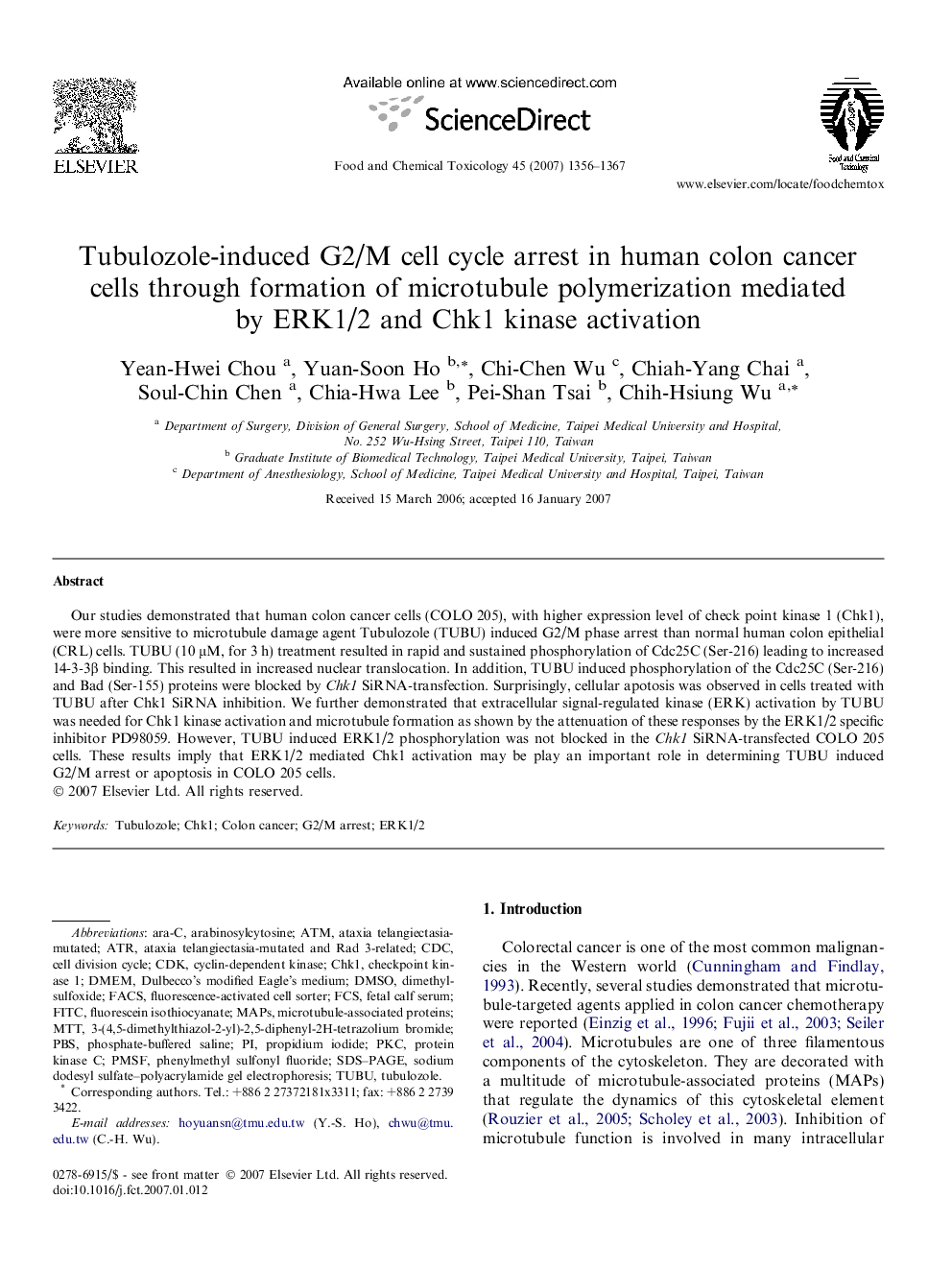| Article ID | Journal | Published Year | Pages | File Type |
|---|---|---|---|---|
| 2587364 | Food and Chemical Toxicology | 2007 | 12 Pages |
Our studies demonstrated that human colon cancer cells (COLO 205), with higher expression level of check point kinase 1 (Chk1), were more sensitive to microtubule damage agent Tubulozole (TUBU) induced G2/M phase arrest than normal human colon epithelial (CRL) cells. TUBU (10 μM, for 3 h) treatment resulted in rapid and sustained phosphorylation of Cdc25C (Ser-216) leading to increased 14-3-3β binding. This resulted in increased nuclear translocation. In addition, TUBU induced phosphorylation of the Cdc25C (Ser-216) and Bad (Ser-155) proteins were blocked by Chk1 SiRNA-transfection. Surprisingly, cellular apotosis was observed in cells treated with TUBU after Chk1 SiRNA inhibition. We further demonstrated that extracellular signal-regulated kinase (ERK) activation by TUBU was needed for Chk1 kinase activation and microtubule formation as shown by the attenuation of these responses by the ERK1/2 specific inhibitor PD98059. However, TUBU induced ERK1/2 phosphorylation was not blocked in the Chk1 SiRNA-transfected COLO 205 cells. These results imply that ERK1/2 mediated Chk1 activation may be play an important role in determining TUBU induced G2/M arrest or apoptosis in COLO 205 cells.
